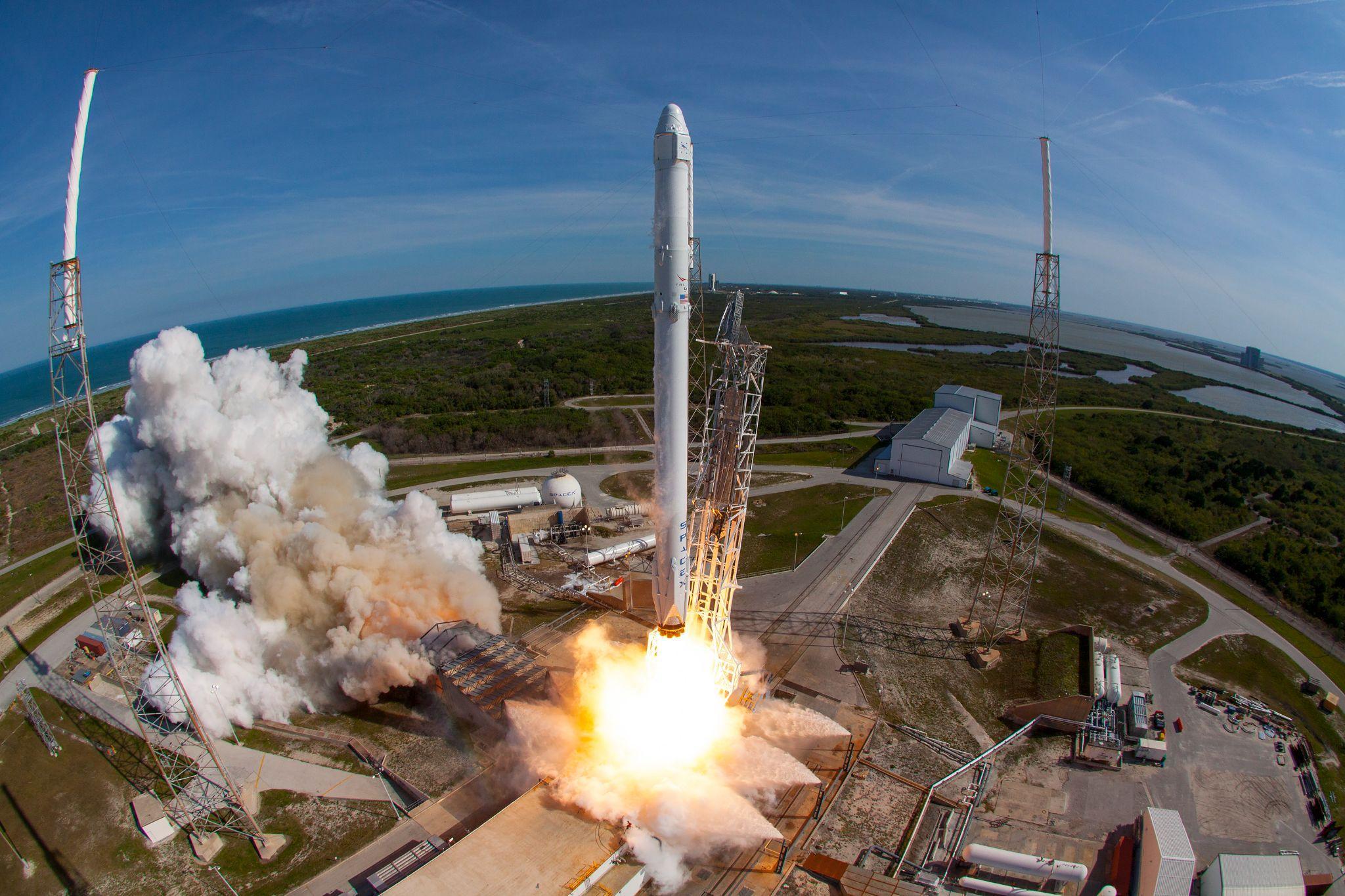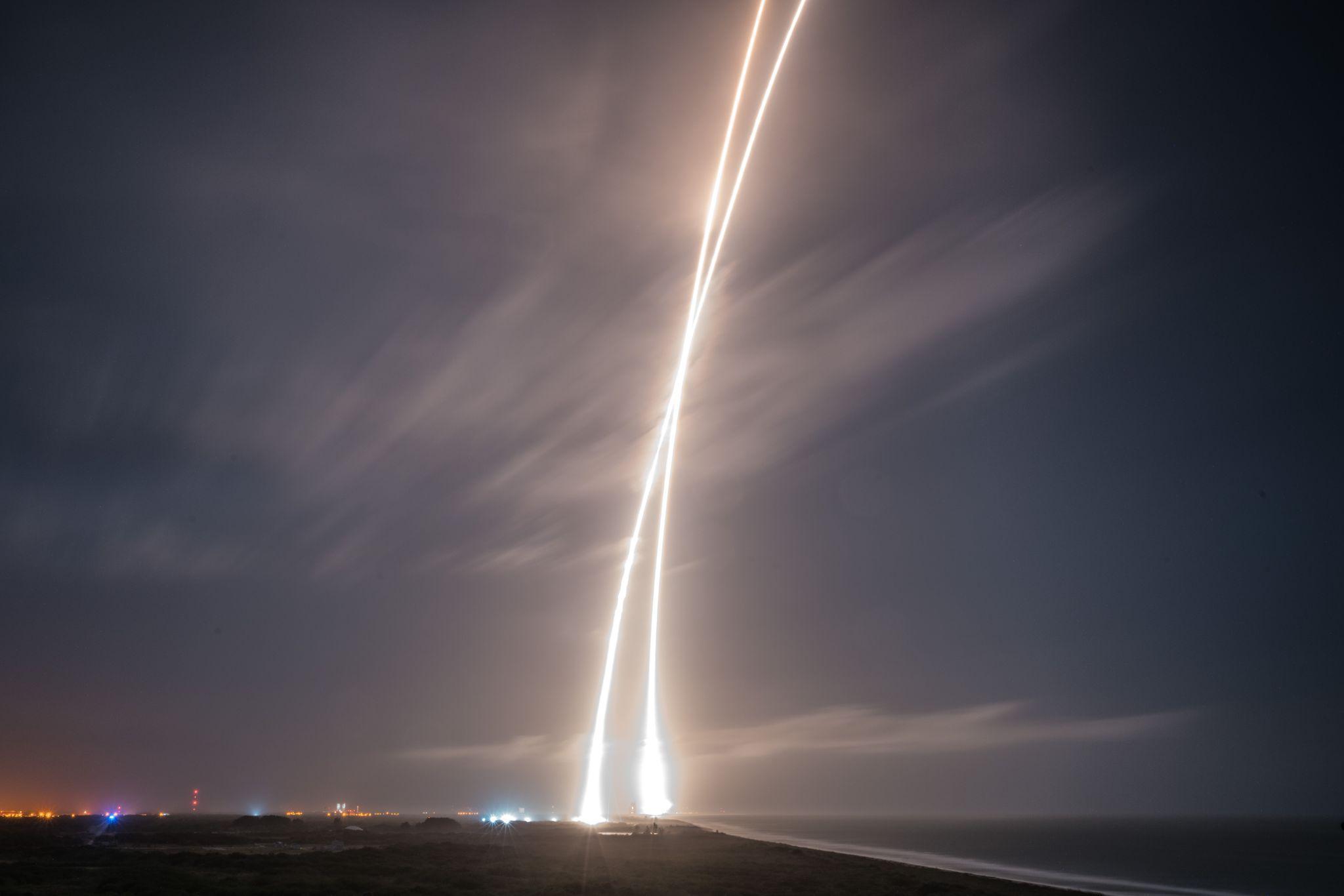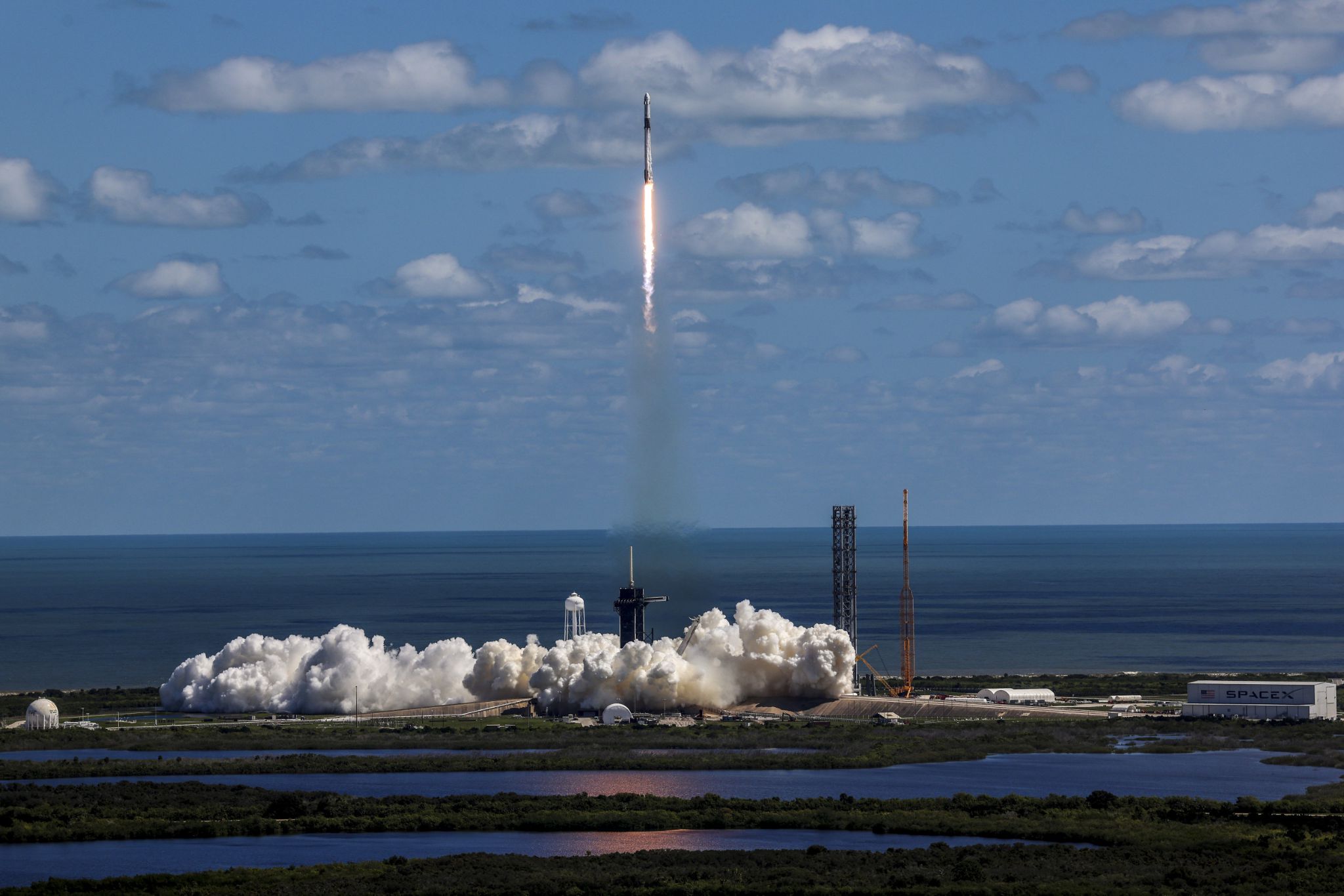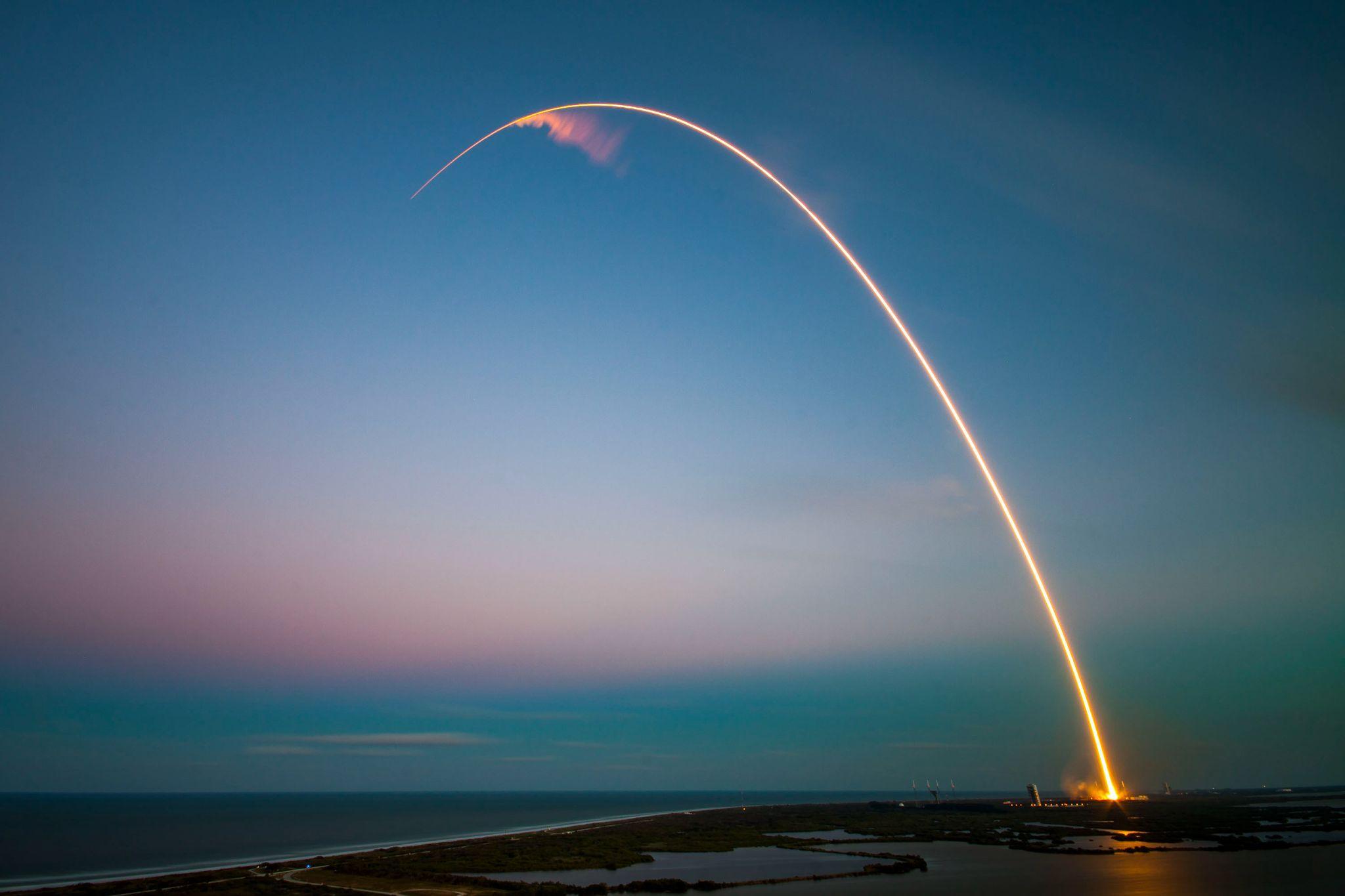Elon Musk’s New Rocket Tore a Hole in the Atmosphere… Again
Elon Musk’s latest SpaceX rocket has punched a hole in the Earth’s atmosphere, according to reports. The mission of the launch was for Falcon 9 to carry 15 Starlink satellites into orbit.
When the Falcon 9 rocket launched from Vandenberg Space Force Base in California, its exhaust fumes reacted to the planet’s ionosphere and created a temporary hole that looks like a red glow in the night sky.
This Isn’t the First Time One of Elon’s Rockets Has Done This
Elon Musk’s rockets have a habit of tearing holes in the ionosphere. Just weeks earlier, the Falcon 9 was launched from the same base in California when a distinct red glow could be seen in the sky.

Source: NASA/Getty Images
The red markings are a telltale sign that the ionosphere had been compromised. Aside from these two recent incidents, the last time a rocket punctured the ionosphere was in 2017 when a “560 mile-wide hole” was made in the layer.
How Exactly Did the Hole Happen?
Located around 50 to 400 miles above our planet’s surface, the ionosphere is also known as the upper layer of the atmosphere. It brims with ions which emit a reddish or greenish light when they interact with solar wind, creating the mesmerizing display of the aurora.

Source: NASA/Getty Images
Water and carbon dioxide from the exhaust of the rocket launch can change the layer’s ionization. When there’s a 70 percent decrease in ionization, it’s similar to a hole being punctured in the layer.
The Circumstances Are Rare and Very Temporary
Though holes being punctured through the ionosphere are more of an uncommon phenomenon, they have become slightly more frequent as more rocket launches occur.

Source: Kevin Dietsch/Getty Images
While the thought of a hole in a layer of our atmosphere certainly sounds catastrophic, the damage is actually minimal. The hole and the sky’s red luminescence typically lasts a few hours before returning to its normal state.
Future Rocket Launches May Have a Greater Impact on the Ionosphere
Charles Lin, a professor at the National Cheng Kung University in Taiwan, believes that future rocket launches will pose a greater risk to the ionosphere.

Source: NASA/Getty Images
“Humans are entering an era where rocket launches are becoming usual and frequent due to reduced cost by reusable rockets,” he said. Lin also noted that more powerful rockets are being launched to other planets, placing more unnecessary strain on the ionosphere.
